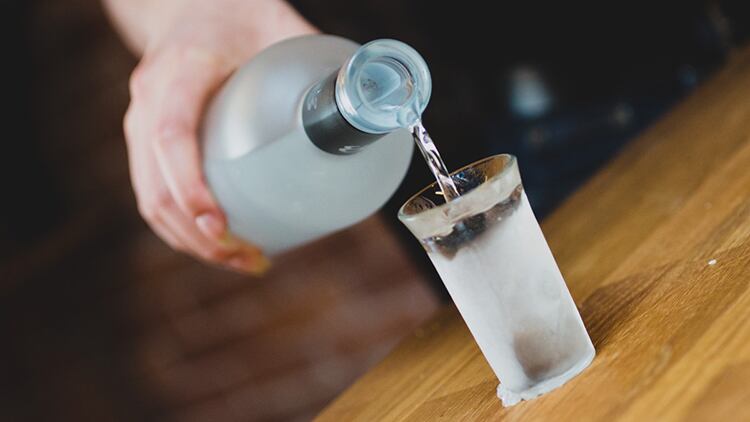In most cases, if a deal seems too good to be true, it is only sensible to proceed with great care and consideration.
Unfortunately, even when precautions are taken, operators and licensed premises are still at risk of being conned into buying, and subsequently selling, counterfeit alcohol to customers.
Serious health risk
We reported earlier this month about a counterfeit vodka being sold in Britain that, if consumed, could cause blindness or death.
Dozens of bottles containing the fake vodka brand called Radanoff were pulled from shelves in Hull, East Yorkshire, after they were discovered on sale in off-licences across the city.
In the run-up to Christmas, bottles of the counterfeit vodka were also seized by councils from home-based sellers, shops and even pubs.
The imitation booze was revealed to contain industrial strength levels of alcohol which can cause blindness, kidney or liver problems and, in extreme cases, death.
So what can operators do in order to determine if booze is the real deal or not?
Operator warning
The Food Standards Agency has issued advice to operators to look out for the ‘four Ps’ when it comes to fake booze: product, price, packaging and place.
Publicans must always be wary of unfamiliar brand names, crooked labels, spelling mistakes, different fill levels of the same brand and sediment in the liquid.
As well as an aesthetic warning, revellers served vodka in pubs, bars and clubs are advised to be wary of fake versions, which can often smell of nail varnish.
Kate Nicholls, CEO at UKHospitality, said it is imperative publicans ensure they only buy alcohol from reputable suppliers.
“It sounds obvious but if it seems too good to be true, it probably is,” explained Nicholls.
“If you get approached by somebody looking to offload two dozen cases of vodka from the boot of a car, it’s almost certainly not above board so use some common sense."
With fake booze a serious health risk to customers, Nicholls added that operators run the risk of a significant fine or even a prison sentence if they are found to have sold counterfeit products.
In serious cases, licensees could be charged with involuntary manslaughter and sentenced to a lifetime behind bars if a customer dies after having consumed fake booze on their premises.
Alcohol fraud fight
Brigid Simmonds, chief executive of the British Beer & Pub Association (BBPA), said she is “fully committed” to tackling alcohol fraud and highlighted that pubs need to take extra care when buying alcohol from new suppliers.
“The BBPA and our members are fully committed to work with HMRC and all stakeholders to tackle alcohol fraud.
“This is why we have always welcomed HMRC’s requirements for wholesaler registrations, which require pubs by law to check that who they purchase from has the appropriate HMRC registration.”
If you have any doubts about a wholesaler, the contents of a delivery or a stock of alcohol, do not turn a blind eye. Contact and notify the police or your local trading standards officer.

